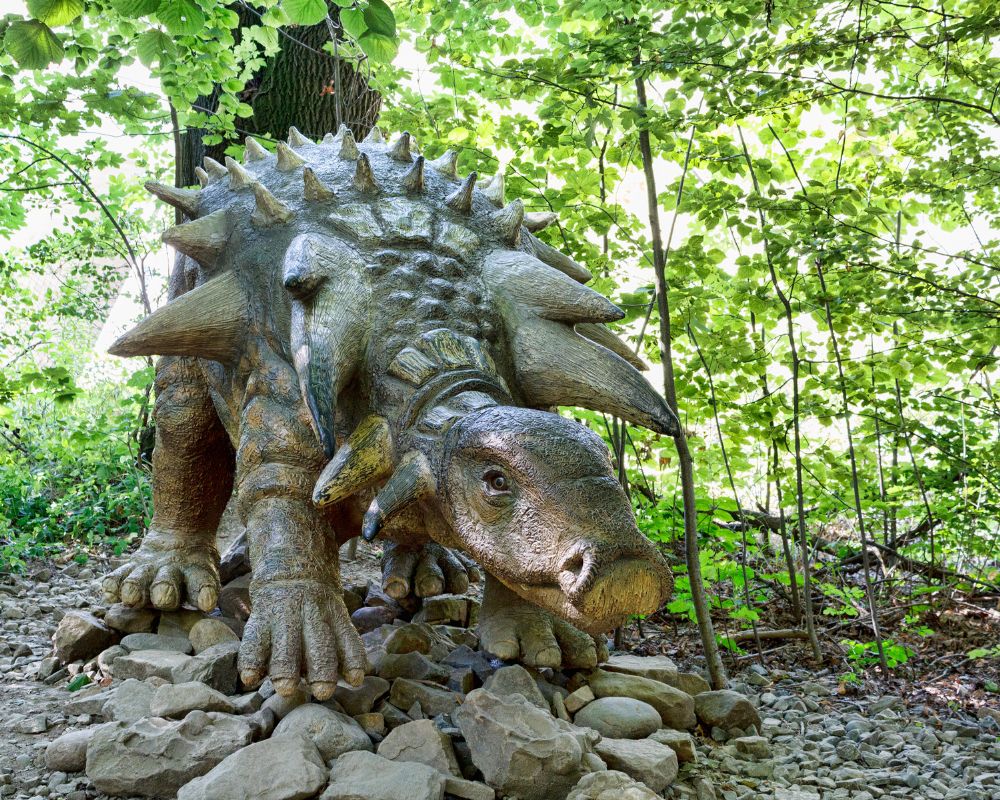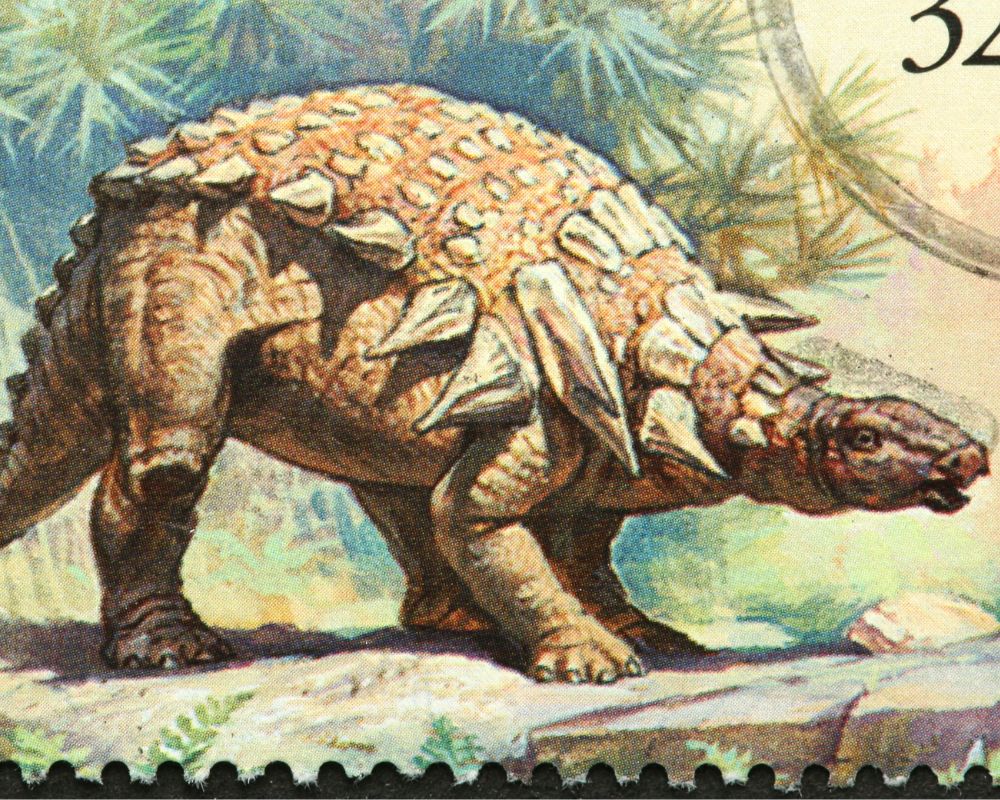An Edmontonia is a tank-like armored dinosaur from the Ankylosauria group. This medium dino looked a lot like other Ankylosaurids without the tail club. However, the Edmontonia had large spikes around its shoulders!
Table of Contents
Some Quick Facts About the Edmontonia

| Name | Edmontonia longiceps (meaning “From the Edmonton formation”) |
| Type of dinosaur | Ornithischia nodosauridae dinosauria |
| Territory | Swampy Late Cretaceous period around Alberta, Canada |
| Size | Medium-sized dino, 22 feet long and 4-5 feet tall |
| Color | Brown or gray with a lighter underbelly |
| Interesting Characteristics | Armored dinosaur with shoulder spikes |
| Diet | Herbivore |
| Major Threats | Tyrannosaurs like Albertosaurus and Daspletosaurus, climate disasters |
The Edmontonia was a tank-like dinosaur found in the early 1900s. It looked like a pangolin or armadillo with armor on top and a soft underbelly. Despite its unexceptional name, the Edmontonia had huge shoulder spikes to protect it from Tyrannosaurs!
Where Did the Edmontonia Get Its Name?
The Edmontonia (ed-mon-TONE-ee-uh) was originally found in the Edmonton Formation in Alberta, Canada. An Edmontosaurus also got its name this way. The type species scientific name Edmontonia longiceps means “Long-headed Edmontonia.
Along with E. longiceps, there is a second species called Edmontonia rugosidens. E. rugosidens used to be called Palaeoscincus rugosidens until 1930. The genus names Chassternbergia and Glyptodontopelta have also been used.
What did Edmontonia Look Like?

The Edmontonia looked a lot like other Ankylosaurs. Osteoderms formed armor on the top, and the underbelly was soft like an armadillo’s. The Edmontonia also had large spikes on the sides and shoulders.
The Edmontonia was part of the Nodosaur family. This subgroup of Ankylosaurs did not have a tail club. Instead of a club, the Edmontonia and other Nodosaurs had a flexible tail tip.
What did Edmontonia eat?
This bulky dinosaur had amazingly small teeth. Its one tooth measured about half an inch. Luckily, it was a herbivore. It ate ferns, cycads, and other low plants.
When and Where Did the Edmontonia Live?
The Edmontonia lived during the Late Cretaceous period near Alberta, Canada. Scientists estimate that the Edmontonia lived about 70 million years ago. The Edmontonia has also been found in the Two Medicine Formation of Montana and South Dakota.
Finding a fossil anywhere is an amazing thing. For a fossil to exist, the dead dino must be covered in sediment and preserved for millions of years. Since many dinos were scavengers like vultures, only a few dinos were left long enough to be preserved for later discovery!
What Dinosaurs is the Edmontonia Related to?
The Edmontonia is most closely related to the following dinos:
- Panoplosaurus
- Texasetes
- Denversaurus
- Nodosaurs
- Polacanthus
- Gastonia
As an armored dinosaur, the Edmontonia is also distantly related to Kentrosaurus, Stegosaurus, and Scelidosaurus.
A lot of the Edmontonia’s relatives lived in the same period. The Edmontonia also lived with other herbivores and quite a few carnivores. The Late Cretaceous period dinos of North America include:
- Albertaceratops
- Albertosaurus
- Ankylosaurus
- Gorgosaurus
- Lambeosaurus
- Parasaurolophus
- Torosaurus

